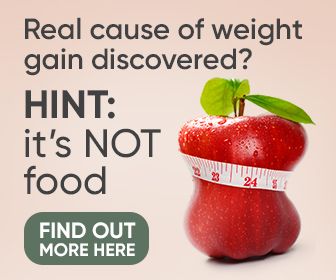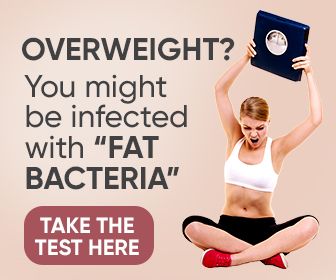Your body is constantly working to filter out toxins, break down harmful substances, and eliminate waste. But in today’s world—where processed foods, artificial additives, and environmental pollutants are everywhere—these natural detoxification systems are often overloaded. When the body can’t keep up, toxins accumulate, leading to fatigue, inflammation, digestive issues, and long-term health complications.
Detoxifying your diet does not require extreme juice cleanses or deprivation. It focuses on eliminating harmful substances while supplying the body with the nutrients it needs to enhance natural cleansing processes. With the right foods and lifestyle habits, you can support the liver, kidneys, gut, and lymphatic system—restoring energy, mental clarity, and overall resilience.
Here’s how to clear out the toxic overload and rebuild your health from the inside out.
1. Hydration: The Foundation of Detoxification
Water is the ultimate detoxifier. It flushes out waste through the kidneys, supports digestion, and keeps the lymphatic system moving. But plain water alone isn’t enough—hydration must be optimized.
For the body to effectively flush out toxins, it needs water that can be absorbed at a cellular level. Water that moves through the body too quickly without the right balance of minerals and electrolytes does little for deep detoxification.
Structured water—naturally found in fruits, vegetables, and plants—contains the ideal combination of hydration and nutrients to support the body’s cleansing processes.
Cucumbers, watermelon, citrus fruits, and leafy greens not only provide water but also essential vitamins and antioxidants that aid in toxin removal. Herbal teas like dandelion and ginger further support the liver and kidneys, helping them filter waste more efficiently.
Mineral-rich sea salt, lemon water, and coconut water replenish lost electrolytes, ensuring that hydration supports kidney function rather than just passing through the system.
Without adequate hydration and mineral balance, detox pathways slow down, allowing toxins to accumulate and strain vital organs. Keeping your body well-hydrated ensures that waste is efficiently eliminated.
2. Cut Out Processed and Artificial Ingredients
The biggest toxin sources in modern diets are processed foods filled with preservatives, artificial sweeteners, flavor enhancers, and trans fats. These ingredients disrupt metabolism, overwork the liver, and trigger inflammation.
Eliminate processed snacks, refined sugars, and artificial additives from your diet.
Read ingredient labels—if you can’t pronounce it, your body likely can’t process it efficiently.
Swap out ultra-processed packaged foods for whole, natural ingredients.
The fewer chemicals your body has to process, the more energy it has for essential functions like repair, digestion, and immune defense.
3. Balance pH: Reduce Acidity, Increase Alkalinity
An overly acidic body environment contributes to inflammation, sluggish digestion, and toxin buildup. Many modern foods—processed meats, dairy, caffeine, alcohol, and refined grains—are highly acidic and force the body to work harder to maintain balance.
To restore equilibrium, focus on alkaline-forming foods:
Leafy greens (kale, spinach, arugula) – Rich in minerals that neutralize acidity.
Cucumber, avocados, almonds – Help regulate pH and support detox pathways.
Lemon water – Though acidic outside the body, it has an alkalizing effect once metabolized.
Reducing acidity reduces inflammation and allows detox organs to function at peak efficiency.
4. Support Your Liver with Detoxifying Foods
The liver is the body’s primary detox organ, filtering toxins, breaking down chemicals, and metabolizing fats. Certain foods naturally enhance liver function and accelerate detoxification.
Cruciferous vegetables (broccoli, Brussels sprouts, cauliflower) – Boost liver enzyme production to break down toxins.
Beets – Stimulate bile production, helping the body digest fats and eliminate waste.
Turmeric – A powerful anti-inflammatory that protects the liver from toxin damage.
Garlic and onions – Rich in sulfur compounds that aid liver detoxification.
A sluggish liver means toxins stay in circulation longer, leading to fatigue, brain fog, and skin issues. Fueling it with the right nutrients helps clear out harmful substances effectively.
5. Repair Gut Health to Prevent Toxin Recirculation
A healthy gut acts as a protective barrier, preventing toxins from re-entering the bloodstream. Poor digestion and an imbalanced microbiome allow harmful bacteria and toxins to leak back into circulation.
To strengthen gut health:
Eat fermented foods like sauerkraut, kefir, and kimchi to replenish beneficial bacteria.
Increase fiber intake from vegetables, flaxseeds, and whole grains to promote elimination.
Avoid excess sugar, alcohol, and processed carbs, which feed harmful gut bacteria and disrupt detox pathways.
When digestion works efficiently, toxins are excreted properly instead of being reabsorbed.
6. Boost Detox Enzymes with Raw and Enzyme-Rich Foods
Digestive enzymes help break down food and support detoxification, but stress, poor diet, and processed foods deplete enzyme levels.
Papaya and pineapple contain natural enzymes (papain and bromelain) that improve digestion and nutrient absorption.
Sprouts, raw vegetables, and fermented foods enhance enzymatic activity and detoxification.
Apple cider vinegar supports digestion and helps the liver process toxins.
Eating more raw and enzyme-rich foods reduces the digestive burden and allows the body to eliminate waste more efficiently.
7. Use Herbal Teas to Enhance Detox Pathways
Certain herbs support detoxification by stimulating liver function, improving digestion, and reducing inflammation.
Dandelion root tea – Supports liver detox and bile production.
Ginger tea – Aids digestion and reduces inflammation.
Milk thistle tea – Protects and regenerates liver cells.
Drinking herbal teas regularly helps clear toxins and supports the body’s natural cleansing processes.
8. Eliminate Industrial Seed Oils That Fuel Inflammation
Vegetable oils like canola, soybean, sunflower, and corn oil are highly processed and packed with inflammatory omega-6 fatty acids. These oils promote oxidative stress and slow down detox pathways.
Replace them with:
Extra virgin olive oil for dressings and light cooking.
Avocado oil for a neutral-tasting, heat-stable option.
Coconut oil or grass-fed butter for high-heat cooking.
By cutting out industrial seed oils, you reduce inflammation and lighten the liver’s detox load.
9. Support the Liver with Coffee Enemas
The liver is the body’s primary detoxification organ, constantly filtering toxins from the bloodstream. But when toxin exposure is high—due to processed foods, environmental pollutants, or stress—the liver can become overburdened. Coffee enemas offer a powerful way to stimulate the liver’s detox pathways, encouraging the release of stored toxins and promoting bile flow.
Caffeine from the enema is absorbed through the colon and travels directly to the liver via the portal vein, triggering the production of glutathione—a master antioxidant responsible for neutralizing toxins. This process helps flush out waste more effectively, reducing inflammation and supporting digestion.
Unlike drinking coffee, which primarily stimulates the nervous system, coffee enemas directly impact liver detoxification. Used correctly, they can enhance bile production, clear out stagnant material in the gut, and improve overall detox efficiency.
For those dealing with sluggish digestion, toxic buildup, or liver congestion, incorporating coffee enemas into a detox routine can accelerate the body’s natural cleansing processes.
Detoxing Your Diet is a Lifestyle, Not a Quick Fix
Your body is always detoxing—it’s what keeps you alive and functioning. But in today’s world, where chemicals, processed foods, and environmental toxins are everywhere, your natural detox pathways are under constant pressure.
Quick-fix juice cleanses and starvation diets fail to deliver real detoxification. True cleansing happens through daily choices—the food you eat, the water you drink, and the habits you maintain.
Small, consistent changes—eliminating toxic foods, prioritizing nutrient-dense meals, and supporting digestion—lead to lasting benefits.
When you lighten the toxic load, the body responds with more energy, sharper focus, healthier skin, and better resilience against illness.
The power to reset your health is already within you—one meal, one habit, and one choice at a time.






